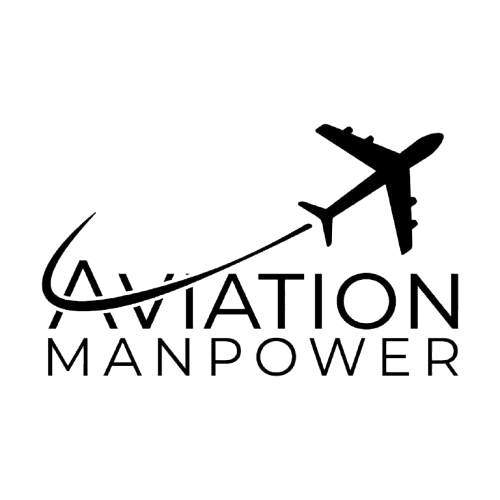Introduction:
When it comes to finding a job in the competitive aviation industry, having a standout resume is essential. Whether you’re a pilot, mechanic, flight attendant, or an air traffic controller, your resume is often the first impression you make on a recruiter. With so many talented candidates applying for similar positions, it’s important to ensure that your resume doesn’t just list your qualifications but showcases your unique skills, experience, and passion for aviation.
A well-crafted aviation resume can make the difference between landing an interview and having your application tossed aside. In this blog, we’ll provide you with crucial tips and strategies to help you create a compelling aviation resume that stands out to recruiters from the best aviation recruitment agencies. From formatting to keyword optimization, we’ll guide you through each step of the process to ensure your resume gets noticed.
1. Focus on Relevant Experience
Aviation recruiters are looking for candidates with experience that directly relates to the job they’re hiring for. Whether you’re applying for a flying job or a technical role, it’s important to emphasize the experience that aligns with the specific demands of the position. Here’s how you can ensure your relevant experience shines:
- Tailor your resume for the job: If you’re applying for a pilot position, highlight your flight hours, certifications, and any specific aircraft types you’ve flown. If you’re applying for a maintenance position, focus on the types of aircraft you’ve worked on and any specialized training or certifications.
- Use action verbs: Words like “managed,” “maintained,” “navigated,” and “inspected” convey a sense of responsibility and action, which is crucial in the aviation industry.
- Quantify your experience: Instead of just stating “over 5 years of experience in aviation,” specify what you’ve accomplished, such as “Over 5 years as a commercial pilot with more than 2,000 flight hours in Boeing 737.”
2. Highlight Certifications and Licenses
In aviation, certifications and licenses are often non-negotiable. It’s essential to list them prominently on your resume to ensure recruiters quickly see that you have the qualifications necessary for the job. Here’s how you can make your certifications stand out:
- Include a dedicated section for certifications: If you hold multiple certifications, consider creating a separate section on your resume specifically for them. Include industry-standard certifications such as FAA certificates, EASA certifications, or any other relevant governing bodies in your country.
- List certifications in reverse chronological order: Always place your most recent and relevant certifications at the top of your resume to show recruiters that you are up-to-date with the latest standards.
- Don’t forget about ongoing training: If you are in the process of completing additional certifications or training, be sure to mention that as well. It shows your dedication to staying current in the field.
3. Emphasize Skills and Competencies
Aviation is a technical field, and your resume should reflect your skills and competencies. It’s important to outline both hard and soft skills that are essential for the role you’re applying for. Hard skills are specific, technical abilities, while soft skills are personal attributes that contribute to your success in the workplace. Here’s how to showcase both:
- Hard skills: For pilots, mention your proficiency in flying different types of aircraft, your knowledge of aviation regulations, and your flight simulation training. For aircraft maintenance roles, list your expertise in areas such as avionics, structural repair, or engine management.
- Soft skills: Aviation professionals must possess strong communication, teamwork, and problem-solving skills. Be sure to include these on your resume, especially if you’ve worked in high-pressure or fast-paced environments where quick decision-making is required.
- Highlight specialized tools or software: If you are skilled in using aviation-specific software such as flight planning tools or maintenance tracking software, mention that as well. Recruiters from aviation job recruitment agencies will appreciate your proficiency with industry-standard tools.
4. Keep It Clean and Organized
Aviation recruiters often review dozens or even hundreds of resumes in a short amount of time. You need to ensure that your resume is easy to read and well-organized. If recruiters can’t quickly find the information they need, they may move on to the next candidate.
Here’s how to keep your resume clean and organized:
- Use a professional format: Stick to a simple, clean format with clear headings and bullet points. Avoid using excessive fonts, colors, or graphics that might distract from the content.
- Stick to relevant information: Only include information that is directly relevant to the aviation job you’re applying for. For example, if you have work experience in a completely unrelated field, you may want to leave it off or only mention it briefly if it provides transferable skills.
- Limit your resume to one or two pages: Most recruiters don’t have the time to read through lengthy resumes. Aim for a concise resume that covers your key qualifications, experience, and certifications.
5. Use Keywords for Applicant Tracking Systems (ATS)
In today’s digital job market, many aviation job recruitment agencies and employers use Applicant Tracking Systems (ATS) to filter through resumes. These systems scan resumes for specific keywords and phrases before they even reach human recruiters. To ensure your resume gets noticed by both the ATS and the recruiter, include relevant keywords throughout your resume.
- Research the job description: Look at the job description for the role you’re applying for and make note of specific keywords used by the company. This could include terms like “aviation maintenance,” “flight operations,” or “aviation safety.”
- Include industry-specific terms: ATS software looks for specific terms related to the aviation industry. For instance, if you’re applying for a pilot role, include keywords like “flight hours,” “commercial pilot license,” or “aircraft types” to make your resume stand out.
- Avoid keyword stuffing: While it’s important to include keywords, make sure you do so naturally. Overloading your resume with too many keywords can make it sound forced and inauthentic.
6. Add a Professional Summary or Objective
A professional summary or objective at the beginning of your resume can be a great way to immediately highlight your value to potential employers. This section should be concise but compelling, focusing on your most impressive skills and accomplishments.
- For experienced professionals: If you have years of experience in the aviation industry, summarize your key achievements and what you bring to the table in a few sentences.
- For those new to the industry: If you’re new to aviation or switching careers, use this section to explain your passion for the industry and your transferable skills.
7. Customize for Each Job Application
It can be tempting to send out the same resume to multiple employers, but customizing your resume for each specific role increases your chances of getting noticed. When you tailor your resume, you show that you’ve taken the time to read the job description and are genuinely interested in the position.
- Use the job description as a guide: Tailor your resume to match the qualifications and responsibilities mentioned in the job posting. Highlight the skills and experiences that are most relevant to the specific role.
- Address the company’s needs: Research the company you’re applying to and tailor your resume to show how you can contribute to their goals. If they emphasize safety, for example, highlight your experience in safety protocols and compliance.
Conclusion
A standout aviation resume can be your ticket to landing an interview with top-tier employers and aviation job recruitment agencies. By focusing on relevant experience, certifications, and specialized skills, and ensuring that your resume is well-organized and keyword-optimized, you’ll improve your chances of standing out from the competition. Whether you’re a seasoned professional or just starting your aviation career, following these tips will help you present yourself as a top contender in the industry.
Remember to customize your resume for each application, highlighting the skills and experiences that matter most to the specific job you’re applying for. By showcasing your passion and qualifications effectively, you’ll increase your chances of catching the attention of the best aviation recruitment agencies and landing your dream aviation job.
FAQs
1. What should I include in my aviation resume to stand out to recruiters?
Focus on your relevant experience, certifications, skills, and any specialized training. Tailor your resume to match the job description, and make sure to use action verbs and quantify your achievements.
2. How can I optimize my resume for Applicant Tracking Systems (ATS)?
Incorporate industry-specific keywords and phrases from the job description to ensure that your resume passes through ATS filters. Avoid keyword stuffing, and make sure the content is readable for both the system and the recruiter.
3. Should I include my entire work history in my aviation resume?
Only include work experience that is relevant to the aviation industry or the specific role you’re applying for. Focus on the most recent and relevant positions.
4. How do I choose the best aviation recruitment agencies?
Research agencies with a strong reputation and experience in the aviation sector. Look for those that specialize in your specific field of aviation, whether it’s piloting, maintenance, or operations.
5. How do I write a professional summary for my aviation resume?
Craft a brief paragraph at the beginning of your resume that highlights your key achievements, experience, and the value you bring to the role. Tailor this summary to reflect the job you’re applying for.

